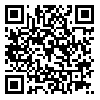Volume 30, Issue 1 (3-2024)
Back to this Issue |
Back to browse issues page
Download citation:
BibTeX | RIS | EndNote | Medlars | ProCite | Reference Manager | RefWorks
Send citation to:



BibTeX | RIS | EndNote | Medlars | ProCite | Reference Manager | RefWorks
Send citation to:
Mardanian Dehkordi L, Ghiyasvandian S. Digital storytelling as an innovative approach for managing the psychological challenges of diabetes. Journal of Hayat 2024; 30 (1) :1-5
URL: http://hayat.tums.ac.ir/article-1-5142-en.html
URL: http://hayat.tums.ac.ir/article-1-5142-en.html
Digital storytelling as an innovative approach for managing the psychological challenges of diabetes
1- Nursing and Midwifery Care Research Center, Isfahan University of Medical Sciences, Isfahan, Iran
2- Dept. of Medical Surgical Nursing, School of Nursing and Midwifery, Tehran University of Medical sciences, Tehran, Iran ,shghiyas@tums.ac.ir
2- Dept. of Medical Surgical Nursing, School of Nursing and Midwifery, Tehran University of Medical sciences, Tehran, Iran ,
Abstract: (754 Views)
Diabetes is one of the most challenging chronic conditions, necessitating continuous and complex management efforts that impacts all aspects of an individual's life (1). Those living with diabetes often experience many social and psychological challenges alongside the disease, ultimately affecting the disease management (2). Addressing and managing these psychological challenges in individuals with diabetes are crucial for optimal disease management and the prevention of serious consequences (3). This issue necessitates the design and implementation of interventions to manage the psychological consequences of diabetes.
Storytelling has emerged as a therapeutic approach utilized in social projects, health promotion, disease prevention, coping with grief, and other concerns (4). Therapeutic storytelling aims to explore the psychological problems experienced by individuals through creative narratives, using problem-solving skills, and providing narrative-based alternatives (5).
Stories serve as a means of expressing viewpoints, revealing emotions, sharing experiences, and transferring information. By engaging in storytelling activities whether through oral or written narratives individuals can absorb valuable lessons, gaining insights into effective problem-solving strategies and emotional expression
Storytelling serve as a means of expressing opinions, revealing emotions, sharing experiences, and transferring information (6). By engaging in storytelling activities whether through oral or written narratives individuals (7)
Storytelling has emerged as a therapeutic approach utilized in social projects, health promotion, disease prevention, coping with grief, and other concerns (4). Therapeutic storytelling aims to explore the psychological problems experienced by individuals through creative narratives, using problem-solving skills, and providing narrative-based alternatives (5).
Stories serve as a means of expressing viewpoints, revealing emotions, sharing experiences, and transferring information. By engaging in storytelling activities whether through oral or written narratives individuals can absorb valuable lessons, gaining insights into effective problem-solving strategies and emotional expression
Storytelling serve as a means of expressing opinions, revealing emotions, sharing experiences, and transferring information (6). By engaging in storytelling activities whether through oral or written narratives individuals (7)
Type of Study: Letter to The Editor |
Subject:
Nursing Care
Published: 2024/06/22 | ePublished: 2024/06/22
Published: 2024/06/22 | ePublished: 2024/06/22
Send email to the article author
| Rights and permissions | |
 |
This work is licensed under a Creative Commons Attribution-NonCommercial 4.0 International License. |






